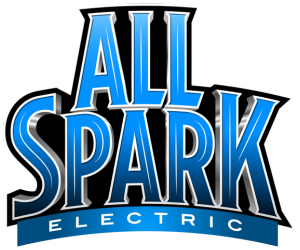Generators are a vital backup source of power for homes and businesses, especially during severe storms, outages, or emergencies. But one of the most common questions we hear from Fort Worth homeowners is: how long can a generator run? The answer depends on several key factors, including generator type, fuel source, maintenance, and load demand.
At All Spark Electric, we’ve helped families and business owners across Fort Worth choose, install, and maintain generators that meet their needs. In this guide, we’ll break down how long different types of generators can run—and what you need to know to operate them safely and efficiently.
Portable Generator: Useful but Limited Runtime
Portable generators are designed for short-term, temporary power needs. Most run on gasoline and are commonly used during brief outages or for powering select appliances or tools.
On average, a standard gas-powered portable generator can run anywhere from 8 to 12 hours on a full tank. High-end models with larger fuel tanks can stretch to 18–20 hours, but it depends heavily on the wattage draw.
Keep in mind that:
-
The more appliances or systems you connect, the faster it will burn fuel
-
Running a generator at 50% load improves efficiency
-
Frequent refueling is required, which may not be safe or convenient during a storm
If you’re relying on a portable unit, you’ll need to have gasoline stored safely and use it only in well-ventilated areas—never indoors or in garages.
Standby Generator: Will Run Longer and Has More Reliable Power
Standby generators (also called whole-home generators) are permanent fixtures that automatically activate during a power outage. Most run on natural gas or propane, which allows for longer runtimes without manual refueling.
The typical natural gas standby generator can run for days or even weeks, as long as the gas supply is uninterrupted. Propane-powered units will run as long as your tank has fuel. For example, a 500-gallon propane tank can power a generator for approximately 7–10 days, depending on the load.
These systems are ideal for:
-
Families who want uninterrupted power during extended outages
-
Homes with medical equipment that can’t lose electricity
-
Businesses that need to avoid downtime
At All Spark Electric, we install and service standby generators across Fort Worth with options tailored to each property’s electrical demands.
Fuel Source Greatly Affects How Long a Generator will Run
The type of fuel your generator uses plays a major role in how long it can operate. Here’s a quick breakdown of typical fuel sources and their runtime implications:
-
Gasoline: Common for portable units. Limited storage life and not safe to refuel during operation. Runs 8–12 hours per tank on average.
-
Propane: Clean-burning and longer shelf life. Propane tanks allow for extended runtime depending on tank size.
-
Natural Gas: Unlimited supply if connected to city lines. Ideal for whole-home generators and long-term outages.
-
Diesel: Found in commercial or high-capacity generators. Diesel units offer long runtimes and are highly efficient.
For residential use in Fort Worth, natural gas is often the most convenient and reliable option, especially when outages are caused by severe weather.
Load Demand and Power Usage Make a Big Difference
How long a generator can run isn’t just about fuel—it’s also about how much power you’re using. The higher the electrical demand, the shorter the runtime.
For example, running only essential systems like a refrigerator, lights, and a sump pump may allow your generator to operate longer. Running central AC, an electric water heater, and all major appliances at once will drain fuel much faster.
To optimize generator performance:
-
Prioritize essential devices
-
Avoid running high-wattage items together
-
Use energy-efficient appliances where possible
An electrician can help you calculate your exact load needs and choose a generator that fits.
Maintenance Impacts Runtime and Reliability
Even the best generator won’t run long—or safely—without proper care. Dirty filters, old oil, or clogged fuel lines can shorten runtime or cause unexpected shutdowns.
To keep your generator running reliably:
-
Change the oil after the first 20–30 hours of use, then every 100 hours after
-
Replace air and fuel filters as recommended
-
Run your generator monthly for 10–15 minutes to keep parts lubricated
-
Have a professional inspection at least once a year
All Spark Electric offers generator maintenance services to Fort Worth homeowners, ensuring your system is ready when you need it most.
Safety Tips for Long Generator Use
Running a generator for hours—or days—requires safety precautions. Follow these tips to avoid health and fire risks:
-
Never run a portable generator indoors or in enclosed spaces
-
Keep units 20 feet away from doors, windows, and vents
-
Install carbon monoxide detectors in your home
-
Cool down before refueling to prevent fire
-
Don’t overload the generator; stick to the rated wattage
The U.S. Consumer Product Safety Commission provides more generator safety tips here.
How Long Can a Generator Run? It Depends on Your Setup
So, how long can a generator run? A portable generator might give you 10 hours of backup power, while a standby system connected to natural gas could keep your whole house running for weeks. It all comes down to your generator type, fuel source, power demands, and how well the system is maintained.
If you’re in the Fort Worth area and want help selecting the right generator or need a professional to service the one you already own, All Spark Electric is here for you.
Power Up With All Spark Electric
Don’t wait until the next outage to think about your backup power. Whether you’re installing a new system or need expert repairs and maintenance, All Spark Electric is your trusted local team for generator services in Fort Worth, TX. We’ll help you choose the right unit, install it to code, and keep it running safely and efficiently for years to come.
Call today or schedule a consultation to get reliable backup power you can count on—day or night.


